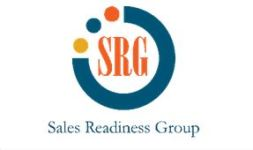Most sales reps have strong selling skills but getting to the next level requires extra effort. Conducting pre- and post-call analyses is an ideal way to raise the bar on every sales call. Such analysis includes developing a clear objective before each call and then conducting a rigorous review afterward. With consistency, this analysis helps improve selling skills and raises the quality of sales conversations.
Before the Call: Develop a Call Objective
Good pre-call planning starts with the end in mind. Start with a clearly defined objective that answers this question: What do you want to accomplish on the call?
Many sales professionals confuse goals with objectives. Goals are what you want to achieve long term (for example, close the deal or grow the account); objectives are the steps you take to reach the goals. Without a clear objective, there’s risk of a sales call morphing into an unfocused social call.
Effective sales call objectives have three characteristics:
They’re attainable. When creating a call objective, first ask, “Is it possible to accomplish this objective on this call?” Closing the sale may not be a realistic objective for a first meeting. Remember, closing the deal is the end goal, but qualifying the opportunity is achievable.
They include buyer commitment. Include a buyer commitment by starting with this statement: “As a result of this call, the buyer will agree to…” The buyer’s commitment should relate to specific actions that will advance the sale. (For example, “The buyer will introduce me to the decision maker.”) The key is to focus on the buyer’s behavior, not sales activity.
They’re measurable. Finally, an effective sales call objective should include detailed information about the commitment you want the buyer to take to measure progress and accomplishments. This means making sure the action is time-bound. (For example, “The buyer will review the proposal with the buying committee by next Tuesday.”)
A sales call objective contains the what, when, who, and how much that can be accomplished on the sales call. Creating a sales call objective also makes it easier to hold the rep accountable for sales call performance.
After the Call: Analyze What Happened
Just like a professional athlete studies videos of game performance, every rep should do a post-call analysis.
The first area of inquiry should focus on results: Was the sales call objective achieved? If yes, how? If not, why not? Also, note any details acquired about the decision maker and the overall opportunity. Confirm if this is still a qualified sales opportunity.
Performance is the other key area to analyze. Reflect on the call to determine what you achieved and what you can do differently next time.
Here is a checklist you can use to analyze rep performance:
Building Sales Relationships
How well was rapport established?
To what extent was trust built?
Were relationships built with other decision makers and influencers?
Planning the Sales Call
Was account research conducted before the call?
Was an objective created before the call?
Developing Needs
Were significant problems or concerns uncovered?
Was the problem explored with the buyer?
Was too much time spent with unqualified buyers?
Presenting Solutions
How well was the buyer’s need connected to the solution?
Was the solution differentiated from competitors’ solutions?
Managing Feedback
Was feedback requested?
Were objections clarified?
Gaining Commitment
Was a commitment made at the end of each call?
Was commitment requested too early (before the buyer was ready to decide)?
The purpose of conducting rigorous post-call analysis is to take ownership of what happened during the sales call and figure out what needs improvement. Combining post-call analysis with a clear call objective is an ideal way to take selling skills to the next level.
You've Reached ATD Member-only Content
Become an ATD member to continue
Already a member?Sign In


